Hitting the Road: The Ultimate Guide to Starting Your Own Food Truck Business
ORDER FORM AT MIAMI FOOD TRUCKS INC
1. Introduction: Why the food truck industry is booming
Introduction: Why the food truck industry is booming
In recent years, the food truck industry has experienced an unprecedented surge in popularity. What was once seen as a humble and convenient option for grabbing a quick meal has now transformed into a thriving and dynamic culinary movement. From bustling city streets to outdoor festivals, food trucks have become a ubiquitous sight, offering an array of delectable dishes that cater to every palate.
So, what exactly has sparked this rapid growth? There are several factors at play. Firstly, food trucks provide a unique and exciting dining experience that appeals to a wide range of customers. Whether it’s gourmet burgers, fusion tacos, or artisanal desserts, food trucks boast an impressive variety of culinary offerings, often prepared by talented chefs who have honed their craft in renowned restaurants.
Another key reason for the industry’s boom is the flexibility and mobility that food trucks offer. Unlike traditional brick-and-mortar establishments, food trucks have the ability to move from one location to another, capitalizing on different events, neighborhoods, or even seasonal trends. This adaptability allows food truck owners to reach a larger customer base and tap into diverse markets, creating an ever-growing demand.
Furthermore, the lower startup costs associated with launching a food truck business have made it an attractive option for aspiring entrepreneurs. Compared to opening a restaurant, which entails substantial investment in real estate, renovations, and staffing, starting a food truck business requires a smaller initial capital outlay. This accessibility has opened doors for individuals with a passion for food and a dream of owning their own business, driving the industry’s expansion.
Lastly, the rise of social media and online food communities has played a significant role in boosting the food truck industry. With a few taps on their smartphones, customers can easily track down their favorite food trucks, stay updated on their latest menus, and even participate in online contests and promotions. This digital presence has helped food truck businesses establish a loyal following and generate buzz, leading to increased visibility and customer engagement.
In this comprehensive guide, we will dive into the world of starting your own food truck business, exploring everything from crafting a unique concept and securing permits to managing operations and marketing strategies. Whether you’re a passionate chef looking to take your culinary creations on the road or an aspiring entrepreneur seeking an exciting venture, this guide is your roadmap to success in the thriving food truck industry. So, buckle up and get ready to hit the road to fulfilling your food truck dreams!
2. Research and Planning: Understanding the market and finding your niche
Research and planning play a crucial role in starting your own food truck business. Before hitting the road, it’s essential to understand the market and find your niche. This step sets the foundation for a successful venture.
To begin, conduct extensive market research to gain insights into the food truck industry. Identify the current trends, popular cuisines, and customer preferences in your target location. This research will help you understand the demand and competition, allowing you to tailor your offerings accordingly.
Next, narrow down your niche. Consider your culinary background, passion, and unique selling points. Are you an expert in a specific cuisine? Do you have a signature dish that sets you apart? By finding your niche, you can differentiate yourself from other food trucks and attract a loyal customer base.
Additionally, analyze the local regulations and permits required to operate a food truck in your area. Each jurisdiction may have specific rules regarding licenses, health codes, and parking restrictions. Familiarize yourself with these requirements to ensure compliance and avoid any legal issues down the road.
Furthermore, develop a solid business plan that outlines your goals, target market, pricing strategy, and marketing approach. This plan will serve as a roadmap to guide your business decisions and attract potential investors or lenders.
Remember, research and planning are ongoing processes. Stay updated with industry trends, customer feedback, and market changes to adapt your offerings and stay ahead of the competition. By understanding the market and finding your niche, you’ll lay the groundwork for a thriving food truck business that satisfies both your passion for food and the needs of your customers.
3. Budgeting and Financing: Determining startup costs and securing funding
Starting a food truck business requires careful budgeting and financing to ensure a smooth and successful launch. Determining your startup costs is an essential first step in this process. It involves considering various factors such as the purchase or lease of a food truck, necessary equipment, inventory, permits and licenses, marketing expenses, and initial working capital.
To accurately assess your startup costs, research is key. Speak with industry experts, food truck owners, and suppliers to get a clear understanding of the expenses involved. Consider the size and condition of the food truck you need, the equipment required for your menu, and any modifications or renovations that may be necessary.
Once you have a comprehensive list of expenses, it’s time to determine how you will finance your venture. There are several options to consider, including personal savings, loans from family and friends, traditional bank loans, crowdfunding, and small business grants. Each option has its pros and cons, so it’s important to carefully evaluate which one aligns best with your needs and goals.
Creating a detailed business plan is essential when seeking financing. This plan should outline your startup costs, projected revenue, and expenses, as well as your marketing and growth strategies. Lenders and investors will want to see a solid plan that demonstrates your understanding of the industry and your ability to generate profits.
Securing funding may require a combination of approaches. For example, you may choose to invest a portion of your personal savings and seek external financing to cover the remaining costs. Be prepared to provide documentation and financial projections to support your funding request.
Remember, budgeting and financing are ongoing tasks in the food truck business. As your business grows, you may need additional funds for expansion, maintenance, or new equipment. As such, it’s crucial to maintain accurate financial records and regularly reassess your budget to ensure the long-term success and sustainability of your food truck venture.
4. Legal Considerations: Licenses, permits, and regulations
When starting your own food truck business, it is crucial to understand and comply with the various legal considerations, licenses, permits, and regulations that govern this industry. Failing to do so can result in hefty fines, legal troubles, and even the closure of your business.
First and foremost, you need to research and obtain the necessary licenses and permits required to operate a food truck in your specific location. These requirements may vary depending on your city, state, or country. Common permits include a business license, mobile food vendor permit, health department permit, and parking permits.
Additionally, you may be required to undergo inspections by health and safety officials to ensure that your food truck meets the necessary hygiene and sanitation standards. This typically involves regular inspections of your food preparation area, storage facilities, and equipment.
Furthermore, it is important to familiarize yourself with the regulations surrounding food handling, storage, and labeling. This includes proper food storage temperatures, handling procedures to prevent cross-contamination, and accurate product labeling to inform customers about potential allergens or ingredients.
Insurance is another crucial aspect to consider. As a food truck owner, you need to protect yourself and your business from potential risks and liabilities. Secure comprehensive insurance coverage that includes general liability insurance, commercial vehicle insurance, and workers’ compensation insurance, if applicable.
Lastly, it is advisable to consult with a legal professional or business advisor with experience in the food truck industry. They can provide valuable guidance on navigating the legal landscape, ensuring compliance with regulations, and avoiding any legal pitfalls that could harm your business in the long run.
By addressing these legal considerations from the start, you can establish a solid foundation for your food truck business, ensuring that you operate legally, safely, and successfully.
5. Choosing the Right Truck: Evaluating different types of food trucks and equipment
Choosing the right truck is a crucial step in starting your own food truck business. Not all food trucks are created equal, and finding the perfect fit for your culinary venture can make all the difference in your success.
When evaluating different types of food trucks, consider factors such as size, mobility, and equipment options. The size of the truck should align with your menu and the amount of space you need to prepare and serve your dishes. A smaller truck may be more maneuverable on crowded streets, but it could limit your cooking capabilities.
Mobility is another important aspect to consider. Do you plan to stay in one location or travel to different events and festivals? If you’re aiming for mobility, look for a truck with reliable engine performance and easy towing capabilities.
Equally important is the equipment inside the truck. Assess your cooking needs and determine the necessary appliances and utilities. From grills and fryers to refrigeration and storage space, make sure the truck you choose has the necessary equipment to support your menu and maintain food safety standards.
Additionally, consider the layout and design of the truck. A well-designed interior can enhance productivity and efficiency. Look for a layout that allows for smooth workflow, with designated areas for food prep, cooking, and serving.
Don’t forget to take into account the overall condition and maintenance history of the truck. It’s best to invest in a reliable and well-maintained vehicle to minimize unexpected breakdowns and costly repairs.
By thoroughly evaluating different types of food trucks and equipment, you can find the perfect fit that meets your specific needs and sets your food truck business up for success on the road.
6. Menu Development: Creating a mouthwatering and profitable menu
Creating a mouthwatering and profitable menu is a crucial aspect of starting your own food truck business. Your menu is not only a representation of your culinary skills and creativity but also a key factor in attracting customers and driving sales.
When developing your menu, it’s important to strike a balance between offering dishes that are both delicious and profitable. Start by identifying your target market and understanding their preferences. Conduct market research to gain insights into the local food scene, popular food trends, and the tastes and preferences of your potential customers. This will help you tailor your menu to cater to their needs and desires.
Consider offering a variety of options that cater to different dietary preferences and restrictions, such as vegetarian, vegan, gluten-free, or dairy-free options. This will expand your customer base and ensure that you can accommodate a diverse range of tastes.
To create mouthwatering dishes, focus on using high-quality ingredients and incorporating unique flavors and culinary techniques. Experiment with different combinations and flavors to create signature dishes that set your food truck apart from the competition. Don’t be afraid to add a personal touch or incorporate elements of local cuisine to add a unique twist to your menu.
In addition to taste, pricing is another crucial aspect of menu development. Analyze the cost of ingredients, preparation time, and overhead expenses to determine the appropriate pricing for your dishes. Striking the right balance between affordability and profitability will ensure that customers see the value in your offerings and keep coming back for more.
Regularly review and update your menu based on customer feedback and market trends. Be open to incorporating seasonal ingredients and limited-time specials to keep your menu fresh and exciting. This will not only entice repeat customers but also attract new ones who are eager to try something new.
Remember, your menu is the heart and soul of your food truck business. By creating a mouthwatering and profitable menu, you’ll be well on your way to delighting customers and building a successful venture on the road.
7. Sourcing Ingredients: Finding reliable suppliers and ensuring quality
When it comes to running a food truck business, sourcing high-quality ingredients is crucial for the success of your culinary creations. Establishing relationships with reliable suppliers is essential to ensure consistent quality and availability of the ingredients you need.
Start by researching local suppliers who specialize in the types of ingredients you require for your menu. Consider factors such as their reputation, reliability, and the quality of their products. Look for suppliers who prioritize freshness, sustainability, and ethical sourcing practices, as these values can align with the image and values of your food truck business.
Don’t be afraid to reach out and schedule meetings or tastings with potential suppliers. This will give you the opportunity to assess the quality of their ingredients firsthand and discuss any specific requirements you may have. Ask questions about their sourcing procedures, delivery schedules, and pricing to ensure they can meet your needs.
It’s also important to consider the logistical aspect of sourcing ingredients. Determine the quantities and frequency with which you will need to restock, and confirm that suppliers can accommodate your volume requirements. Additionally, factor in the storage capacity of your food truck and make sure you have proper facilities to store perishable items at the required temperatures.
Maintaining strong relationships with your suppliers is beneficial for both parties. Communicate your expectations clearly, provide feedback on the quality of ingredients received, and promptly address any issues that may arise. Building trust and rapport with your suppliers can lead to better pricing, priority access to seasonal ingredients, and potentially even collaborations or partnerships in the future.
Remember, the quality of your ingredients directly impacts the taste and reputation of your food truck. By sourcing from reliable suppliers and ensuring consistent quality, you can impress your customers and set your business apart in the competitive food truck industry.
8. Marketing and Branding: Creating a strong brand identity and promoting your business
Marketing and branding are crucial aspects of starting and running a successful food truck business. Creating a strong brand identity will help differentiate your food truck from the competition and attract customers. Here are some key strategies to consider:
1. Develop a Unique and Memorable Brand: Start by defining your brand’s personality, values, and target audience. Consider what sets your food truck apart, whether it’s a specific cuisine, a unique menu item, or a distinct atmosphere. Use this differentiation to craft a compelling brand story that resonates with your customers.
2. Design an Eye-Catching Logo and Truck Wrap: Your logo and truck wrap should visually represent your brand and catch people’s attention. Hire a professional graphic designer to create a visually appealing logo that reflects your brand’s personality. Utilize bold colors, clean typography, and attractive imagery to make your truck stand out on the road.
3. Consistent Branding Across All Channels: Ensure consistent branding across your online presence, including your website, social media profiles, and promotional materials. Use your logo, colors, and fonts consistently to reinforce your brand identity and make it easily recognizable to customers.
4. Social Media Marketing: Leverage the power of social media to promote your food truck business. Create engaging content, such as mouthwatering food photos, behind-the-scenes videos, and customer testimonials. Engage with your followers, respond to comments and messages promptly, and utilize hashtags relevant to your cuisine or location to expand your reach.
5. Collaborate with Influencers and Local Businesses: Partnering with influencers and local businesses can significantly boost your brand visibility. Consider hosting collaborative events, offering exclusive discounts or promotions, or featuring guest chefs to attract new customers and generate buzz.
6. Participate in Food Festivals and Events: Food festivals and community events are great opportunities to showcase your food truck and reach a wide audience. Research and participate in local food festivals, farmers markets, and other events where you can set up your truck and engage with potential customers.
7. Collect Customer Feedback and Reviews: Encourage customers to provide feedback and leave reviews on platforms like Google, Yelp, or social media. Positive reviews will build trust and credibility, while constructive feedback can help you improve your offerings and customer experience.
Remember, effective marketing and branding require consistency, creativity, and a deep understanding of your target audience. By investing time and effort into these areas, you can build a strong brand identity and establish a loyal customer base for your food truck business.
9. Operations and Logistics: Managing inventory, staffing, and scheduling
When starting your own food truck business, it’s crucial to have a solid plan in place for managing operations and logistics. This includes effectively managing inventory, staffing, and scheduling to ensure smooth operations and customer satisfaction.
Inventory management is key to running a successful food truck business. You’ll need to carefully track your ingredients, supplies, and equipment to avoid running out of essential items during your busy hours. Implementing a reliable inventory management system, whether it’s through a digital platform or manual tracking, will help you stay organized and ensure you always have what you need on hand.
Staffing is another critical aspect of your food truck business. Hiring the right team members who are passionate about food and customer service is essential. Clearly define roles and responsibilities, and establish a training program to ensure your staff is knowledgeable and capable of delivering high-quality food and service.
Creating a well-thought-out schedule is key to managing your food truck’s operations. Take into consideration peak hours, events, and locations where you plan to operate. This will help you determine the optimal number of staff members required and allow you to make adjustments as needed. Additionally, having a backup plan in case of emergencies or unexpected challenges will help you stay prepared and maintain efficient operations.
Investing in technology can greatly enhance your operations and logistics management. Utilize mobile apps and software solutions designed specifically for food trucks to streamline processes such as inventory tracking, scheduling, and communication with your team. These tools can save you time and effort, allowing you to focus on providing exceptional food and service to your customers.
By effectively managing inventory, staffing, and scheduling, you’ll be able to ensure the smooth functioning of your food truck business. This will not only improve customer satisfaction but also contribute to the overall success and profitability of your venture.
10. Location, Location, Location: Finding the best spots to park your food truck
Finding the best spots to park your food truck is crucial for the success of your business. The right location can make all the difference in attracting hungry customers and maximizing your sales potential.
First and foremost, research is key. Look for areas in your city or town that have a high foot traffic, such as business districts, shopping centers, parks, or popular event venues. These areas are likely to attract a large number of potential customers who are looking for a quick and convenient meal on-the-go.
Consider the demographics of the area as well. Are there businesses nearby with employees who might be looking for a lunch option? Is the neighborhood known for its food scene and food truck culture? Understanding the preferences and needs of your target audience will help you identify the most profitable locations to park your food truck.
Don’t forget to check local regulations and permits. Some areas may have restrictions on where food trucks can operate, so it’s important to do your due diligence and ensure you are in compliance with all the necessary permits and licenses. Additionally, look into any parking restrictions or time limits that may affect your ability to stay in one spot for an extended period.
Consider partnering with local businesses or community organizations to secure prime parking spots. Collaborating with a popular coffee shop, for example, can provide you with a steady flow of customers who are already in the area. You can also explore opportunities to participate in local events, festivals, and farmers markets, as these can be excellent platforms to showcase your food truck and attract a larger crowd.
Remember, it’s not just about finding the busiest areas, but also about finding the right balance between competition and demand. Keep an eye on your competitors to ensure you’re not parking too close to them and cannibalizing each other’s business.
In conclusion, finding the best spots to park your food truck requires careful research, understanding your target audience, and complying with local regulations. By strategically selecting your locations, you can increase your visibility, attract more customers, and set yourself up for success in the competitive world of food truck business.
11. Building a Loyal Customer Base: Engaging with customers and fostering loyalty
Building a loyal customer base is crucial for the success of any food truck business. With competition rising in the mobile food industry, it’s essential to engage with customers and foster their loyalty. Here are some effective strategies to achieve this:
1. Provide exceptional customer service: Treat each customer interaction as an opportunity to create a positive and memorable experience. Greet customers with a smile, take the time to listen to their needs, and go the extra mile to exceed their expectations. By providing exceptional service, you’ll leave a lasting impression on your customers and encourage them to come back.
2. Offer personalized experiences: Get to know your customers and tailor your offerings to their preferences. Collect feedback and use it to improve your menu, introduce new dishes, or offer special promotions. Personalization shows that you value your customers’ opinions, making them feel appreciated and more likely to return.
3. Create a loyalty program: Implementing a loyalty program can be an effective way to incentivize repeat visits. Consider offering rewards such as discounts, freebies, or exclusive access to new menu items. By rewarding customers for their loyalty, you’ll encourage them to choose your food truck over competitors.
4. Engage on social media: Leverage the power of social media to connect with your customers beyond the physical presence of your food truck. Share mouthwatering food photos, behind-the-scenes glimpses, and updates about upcoming events or specials. Respond to comments and messages promptly, fostering a sense of community and making customers feel valued.
5. Participate in local events: Engage with your community by participating in local events, festivals, and fundraisers. This not only allows you to showcase your delicious food but also helps you build relationships with customers and other vendors. Being an active participant in the community can greatly contribute to building a loyal customer base.
Remember, building customer loyalty takes time and effort. Consistency, quality, and genuine engagement will be key to creating a strong bond with your customers, ensuring they keep coming back for more delicious meals from your food truck.
12. Adapting to Challenges: Overcoming obstacles and staying ahead in a competitive industry
Running a food truck business can be an exhilarating adventure, but it is not without its fair share of challenges. The food truck industry is highly competitive, with new vendors popping up constantly, and established ones constantly innovating to stay ahead. To ensure your success and longevity in this bustling industry, it is crucial to adapt to challenges and overcome obstacles that come your way.
One of the biggest challenges faced by food truck owners is finding the right location. The competition for prime spots can be fierce, especially in popular areas with high foot traffic. It is essential to scout various locations, analyze their potential customer base, and establish relationships with property owners or event organizers to secure the best spots for your food truck. Additionally, staying informed about local regulations and obtaining the necessary permits and licenses is vital to avoid legal issues and penalties.
Another challenge faced by food truck businesses is managing the operational logistics efficiently. Limited space, especially in smaller food trucks, requires careful planning to ensure a smooth workflow. Organizing ingredients, equipment, and supplies, as well as optimizing cooking processes to serve customers swiftly, are essential components of running a successful food truck. Embracing technology can also help streamline operations, such as using mobile POS systems for efficient order taking and payment processing.
In a competitive industry, standing out from the crowd is crucial. Developing a unique brand identity and crafting a compelling menu with signature dishes that differentiate your food truck can attract loyal customers. Engaging with your target audience through social media, attending local food events and festivals, and collaborating with other businesses can also help increase your visibility and generate buzz around your food truck.
Flexibility and adaptability are key traits for overcoming challenges in the food truck industry. Market trends and customer preferences can change rapidly, and it is vital to stay ahead of the curve. Regularly evaluating your menu, experimenting with new flavors, and embracing dietary trends or cultural influences can keep your offerings fresh and exciting. Additionally, staying updated on industry news, attending conferences or workshops, and networking with other food truck owners can provide valuable insights and innovative ideas to navigate the ever-evolving landscape.
In conclusion, running a food truck business requires perseverance, creativity, and the ability to adapt to challenges. By staying ahead in a competitive industry, overcoming obstacles, and continually seeking ways to improve, your food truck can flourish and become a beloved destination for food enthusiasts everywhere.
13. Growing Your Business: Scaling up and expanding your food truck empire
Once you have successfully launched your food truck business and established a loyal customer base, it’s time to think about scaling up and expanding your empire. The possibilities are endless when it comes to growing your business, and with careful planning and execution, you can take your food truck to new heights.
One option for scaling up is to invest in additional food trucks. This allows you to reach a wider audience by serving multiple locations simultaneously. However, before diving into this expansion strategy, it’s crucial to assess the demand in each potential location and ensure that you have the necessary resources to maintain the quality and consistency of your food and service.
Another avenue for growth is to explore catering opportunities. Many individuals and businesses are constantly seeking unique and delicious food options for their events, and food trucks are becoming increasingly popular in the catering industry. By offering catering services, you can tap into a whole new market and increase your revenue streams.
Collaborations and partnerships can also play a significant role in scaling up your food truck empire. Consider teaming up with local breweries, wineries, or other food trucks to host joint events or create special menus. This allows you to leverage each other’s customer base and expand your reach while providing a unique and exciting experience for your customers.
Investing in technology can also streamline your operations and help you grow efficiently. Implementing a mobile ordering system or developing a user-friendly app can attract tech-savvy customers who prefer the convenience of ordering and paying for their meals online. This not only enhances the customer experience but also allows you to process orders more efficiently, leading to increased sales and customer satisfaction.
Lastly, don’t underestimate the power of marketing and branding. As you grow your food truck empire, investing in a strong online presence, social media marketing, and engaging content can help you attract new customers and keep them coming back for more. Utilize platforms like Instagram, Facebook, and Twitter to showcase your mouthwatering dishes, share behind-the-scenes stories, and interact with your audience.
Scaling up and expanding your food truck empire requires careful planning, resource management, and a customer-centric approach. By exploring different growth strategies, investing in technology, and leveraging partnerships, you can continue to wow your customers and take your food truck business to new heights of success.
14. Conclusion: Tips for success and the fulfilling journey of being a food truck owner
Starting your own food truck business can be an exhilarating and fulfilling journey. Throughout this ultimate guide, we have covered various aspects of launching and running a successful food truck venture. Now, it’s time to wrap it up with some final tips for success and reflect on the incredible journey that awaits you as a food truck owner.
First and foremost, remember that passion and dedication are the driving forces behind any successful food truck business. You must have a genuine love for food and a desire to share your culinary creations with the world. This enthusiasm will not only fuel your motivation but also resonate with your customers, creating that special connection that keeps them coming back for more.
Secondly, always prioritize quality and consistency in everything you do. From the ingredients you source to the preparation of your dishes, strive for excellence every step of the way. Customers appreciate attention to detail and the assurance of a consistently satisfying experience, which will earn you a loyal following.
Building a strong brand presence is also crucial in the competitive food truck industry. Develop a unique and memorable brand identity that reflects your culinary style and resonates with your target audience. Use social media platforms, food festivals, and community events to showcase your food and engage with potential customers. A strong online presence combined with positive word-of-mouth can significantly boost your visibility and attract a steady stream of hungry patrons.
Flexibility is another key attribute for food truck owners. Embrace the ever-changing nature of the industry, and be prepared to adapt to new trends, customer preferences, and even unexpected challenges. Keeping your menu fresh and exciting, experimenting with new flavors, and incorporating customer feedback will keep your business dynamic and relevant.
Lastly, never underestimate the power of collaboration. Forge partnerships with local businesses, event organizers, and fellow food truck owners. Participate in food truck rallies and collaborate on special events. By working together, you can amplify your reach, share resources, and create memorable experiences for your customers.
Embarking on the journey of being a food truck owner is not without its challenges, but the rewards are immeasurable. The freedom to showcase your culinary creativity, the joy of connecting with customers, and the sense of accomplishment from building a successful business make it all worthwhile. So, follow your passion, embrace the tips shared in this guide, and get ready to hit the road to food truck success. Bon appétit!
FINANCING APPLICATION FORM
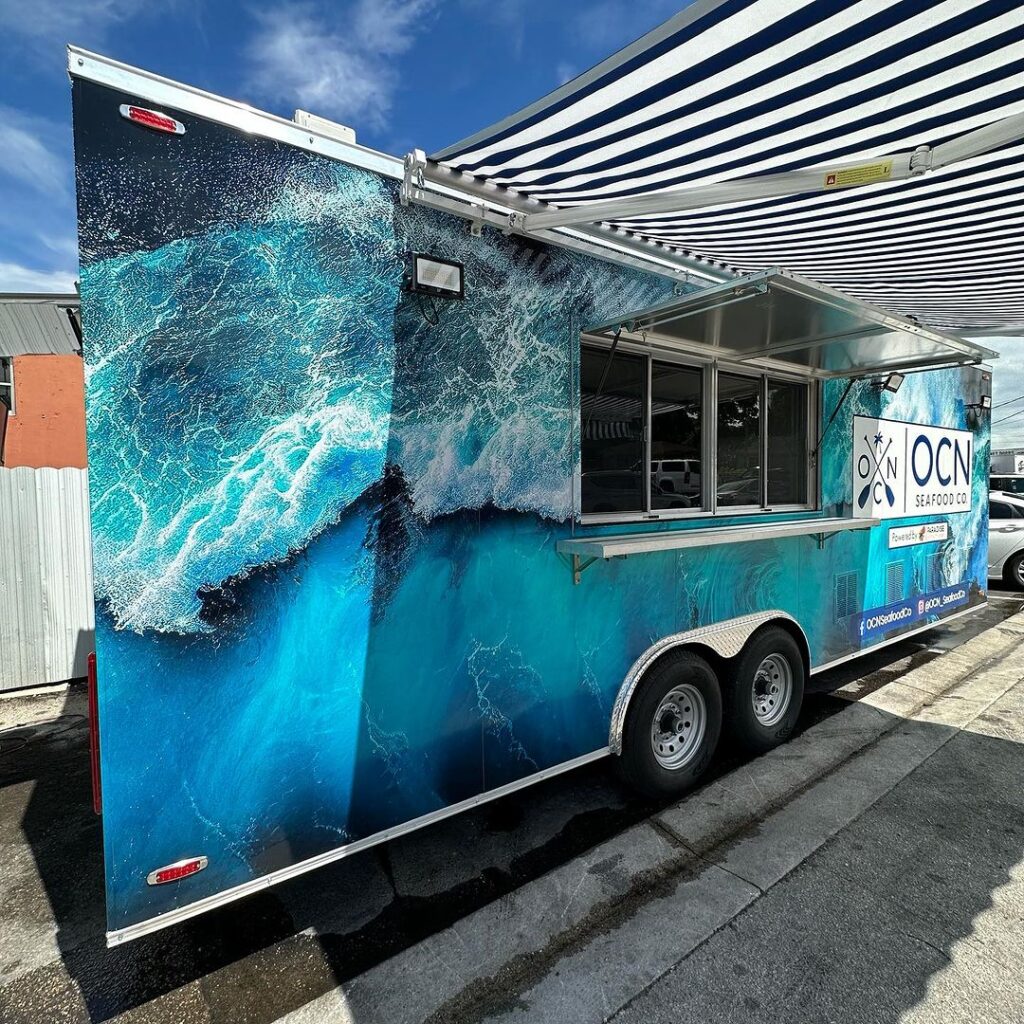
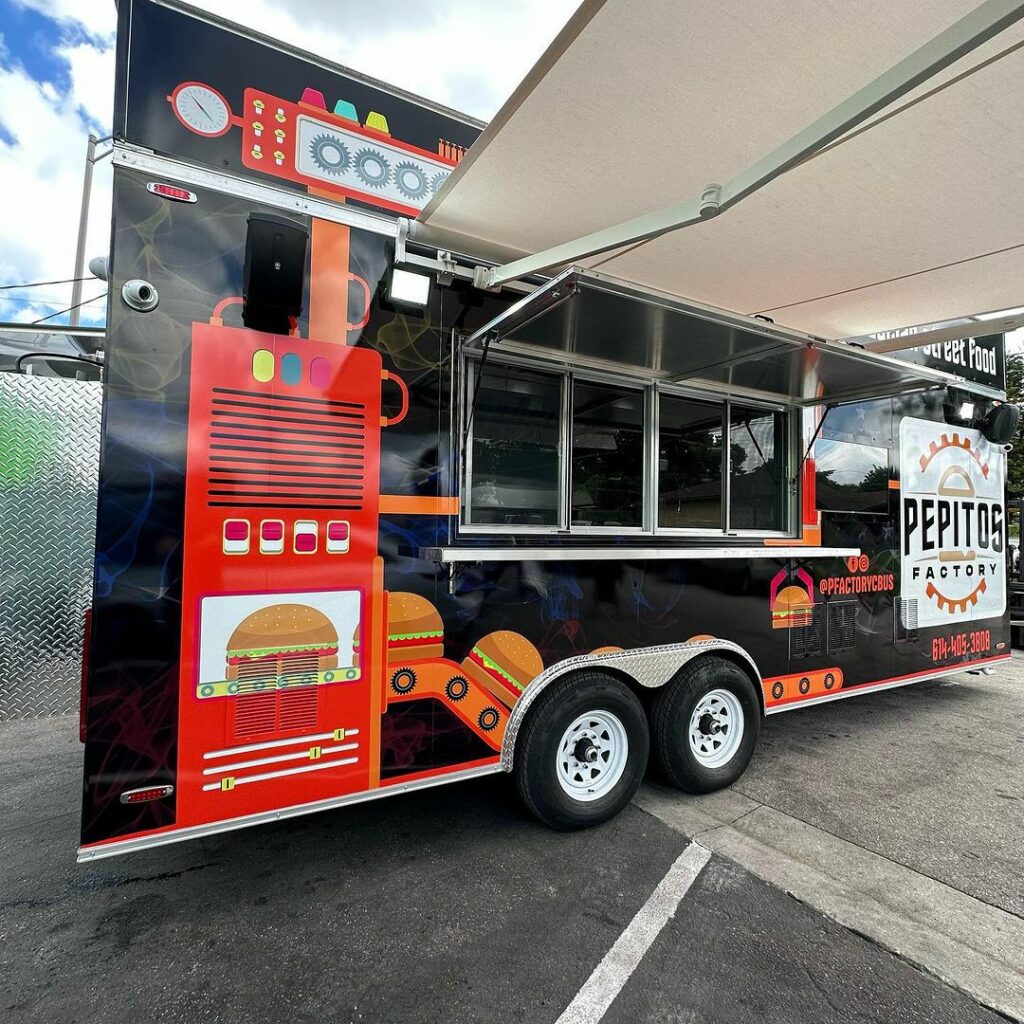
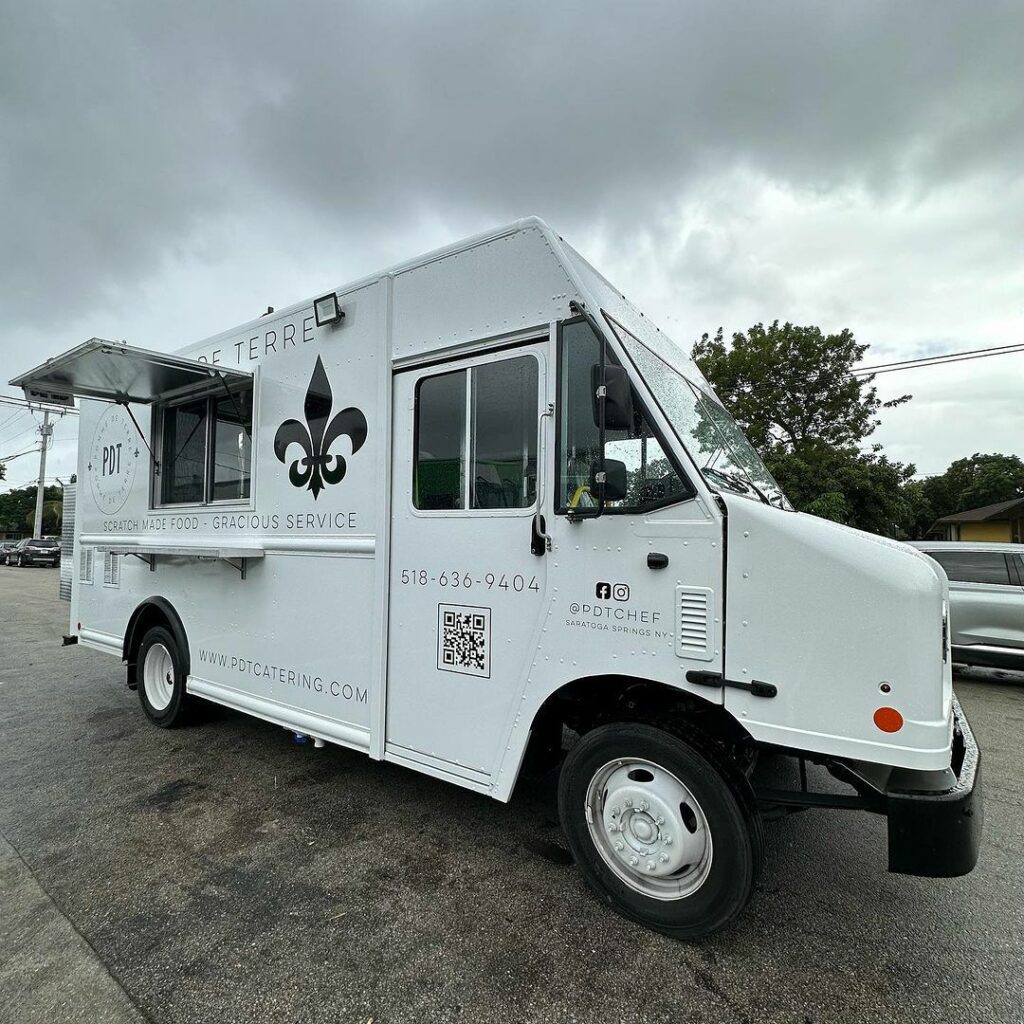
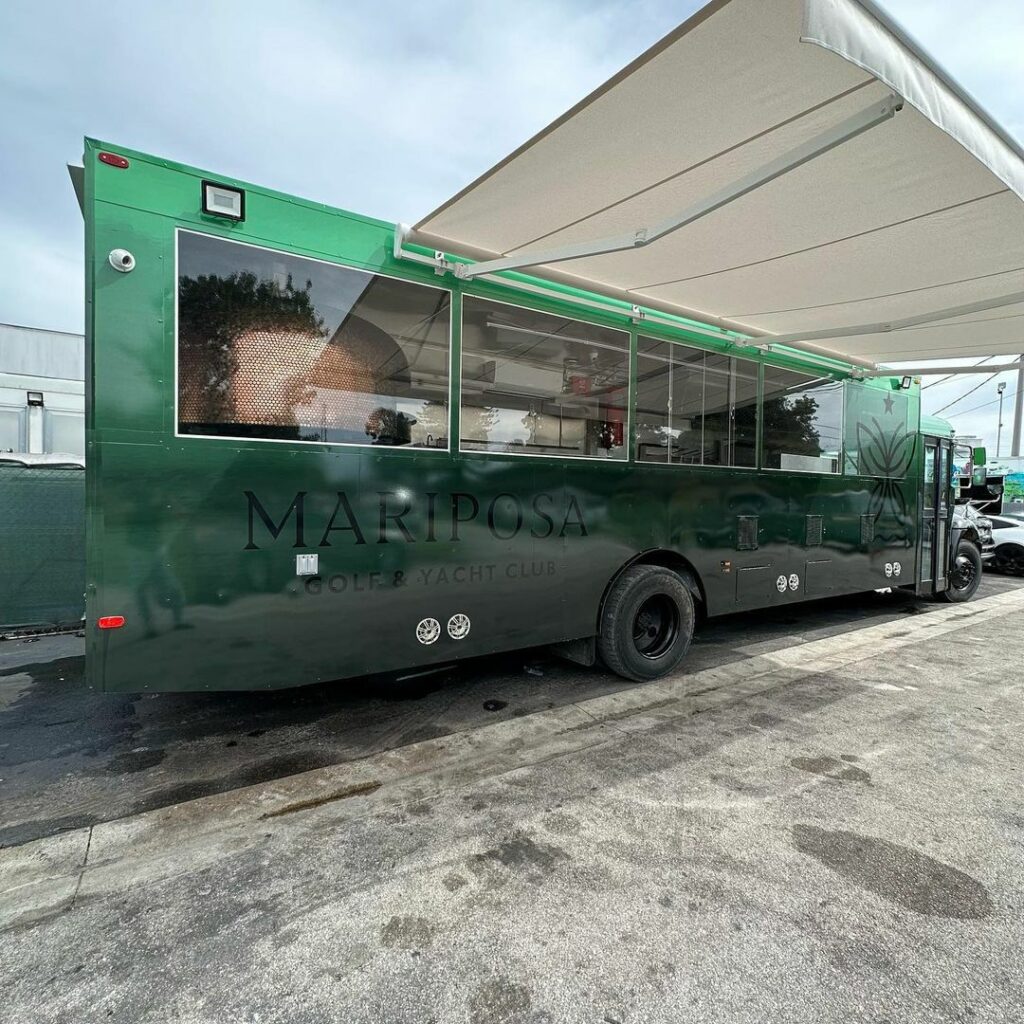
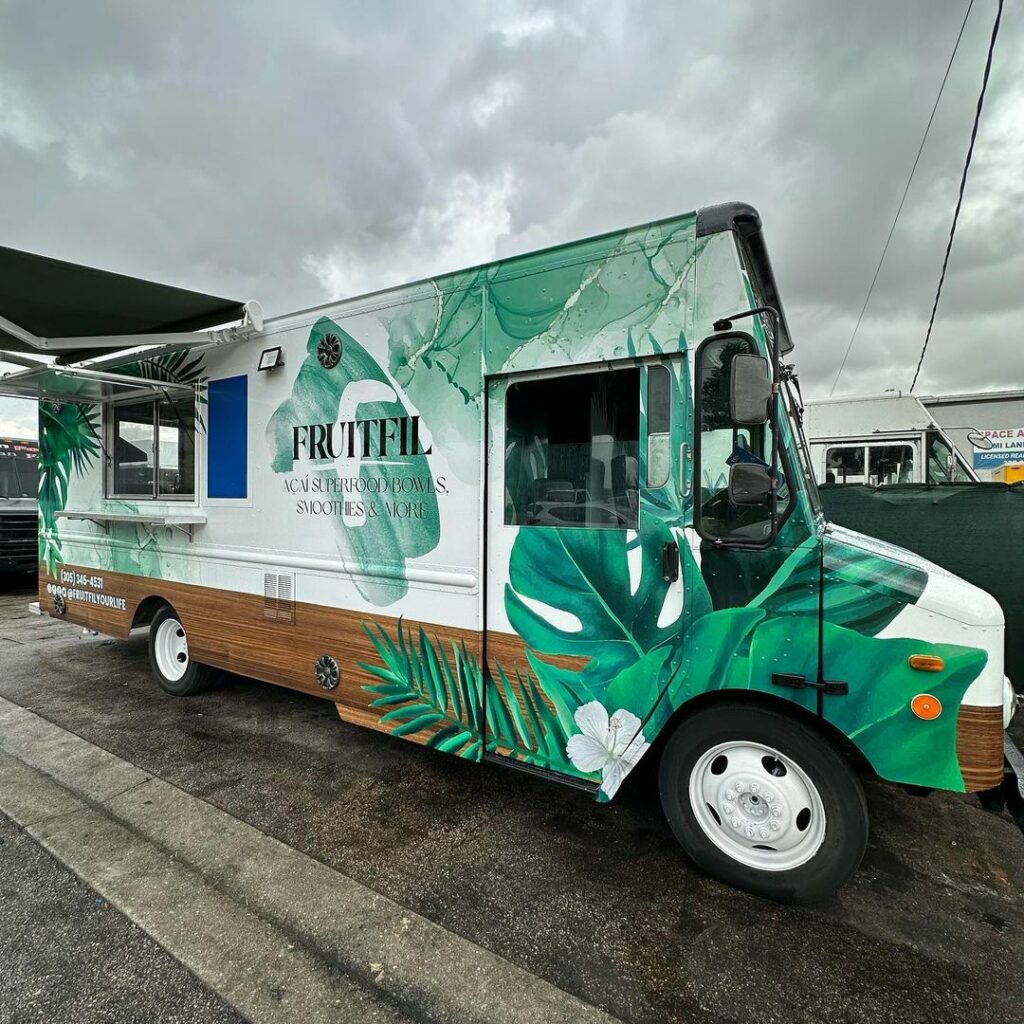
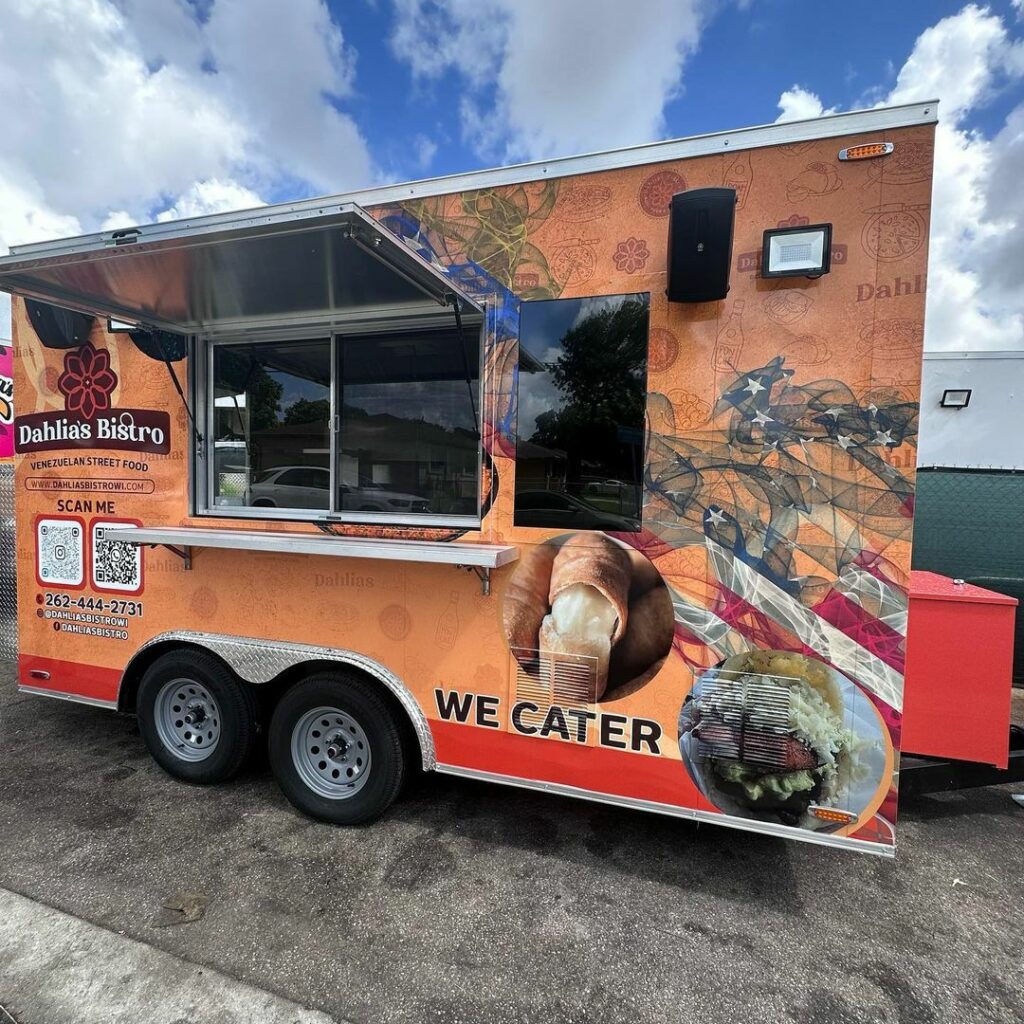
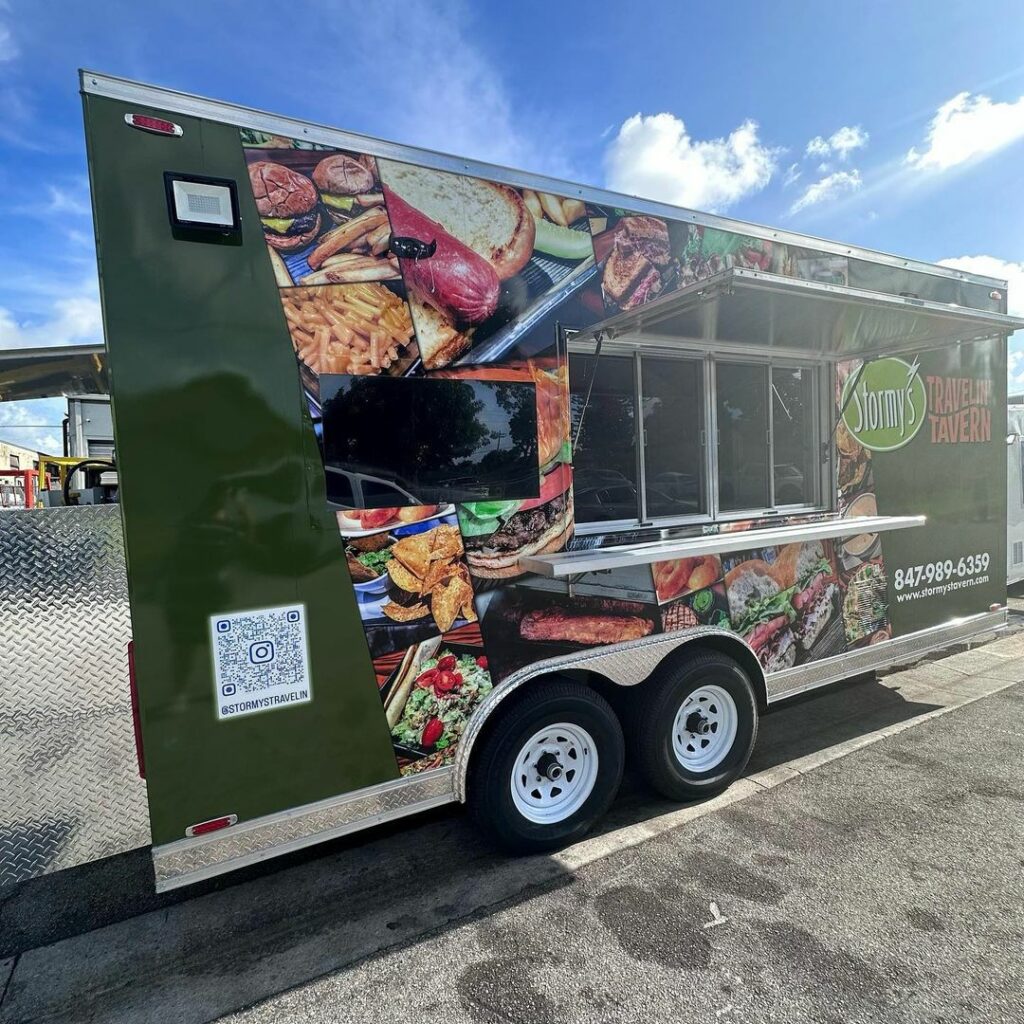
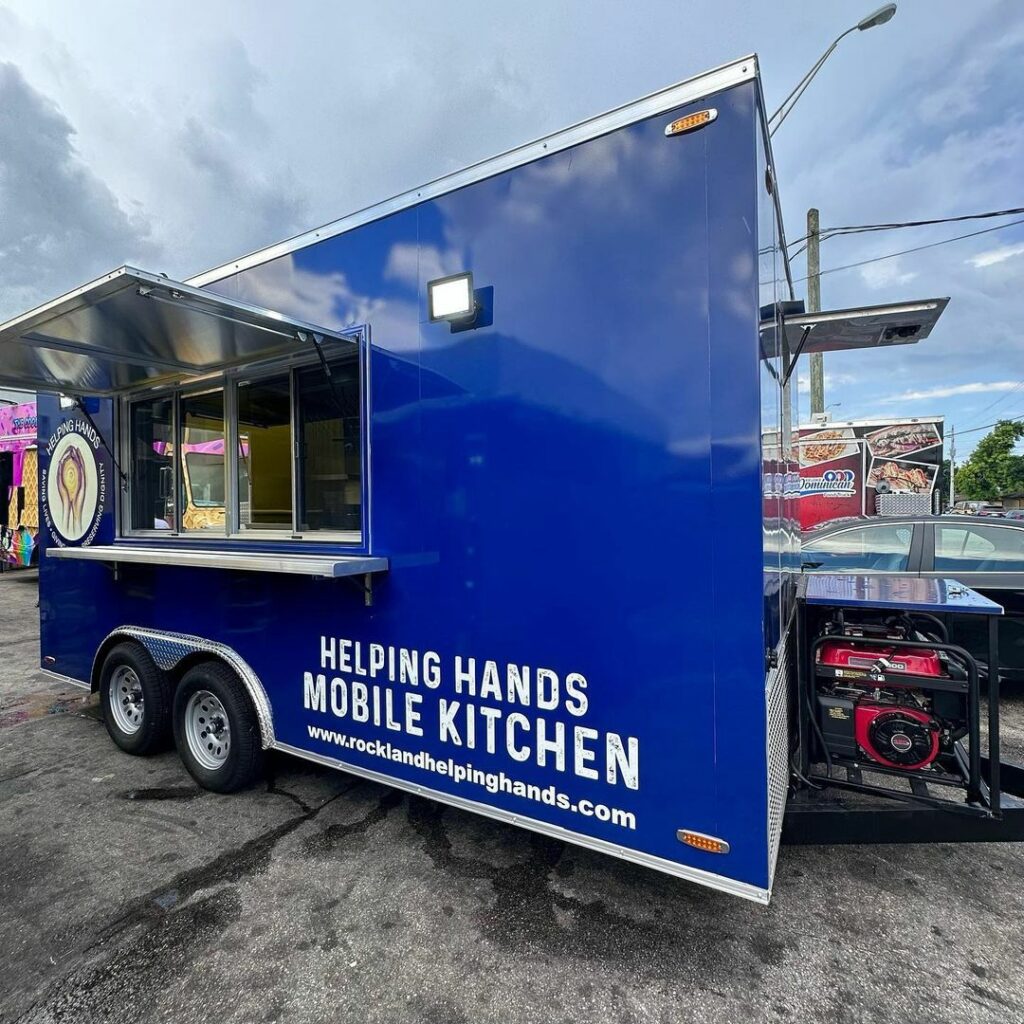
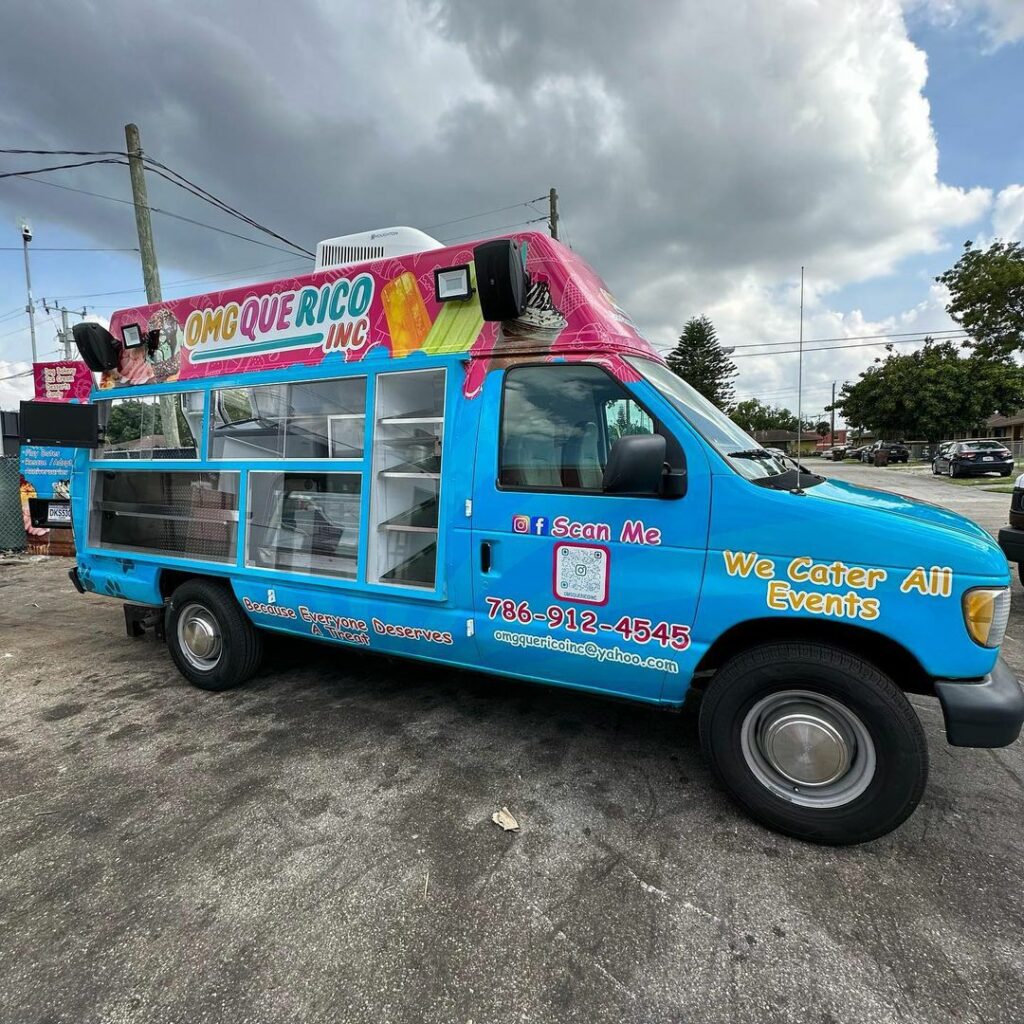
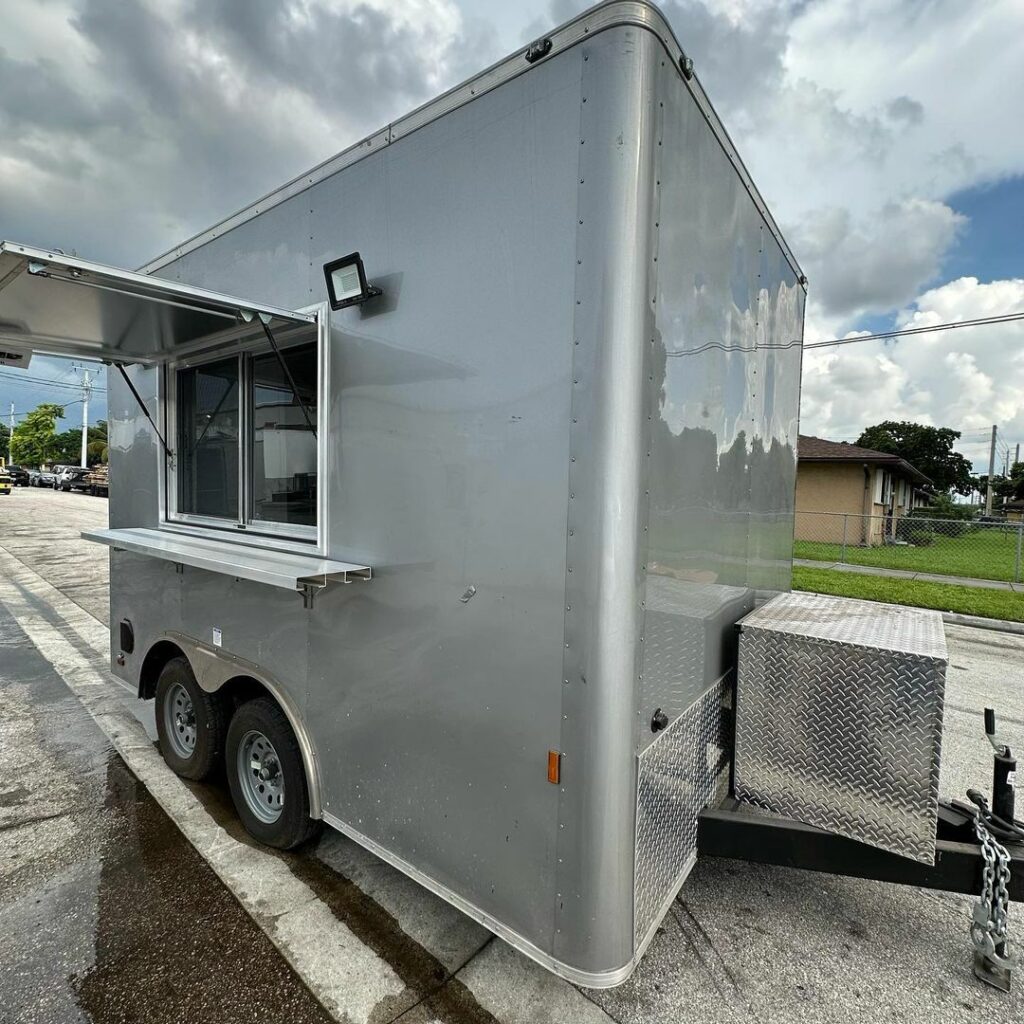
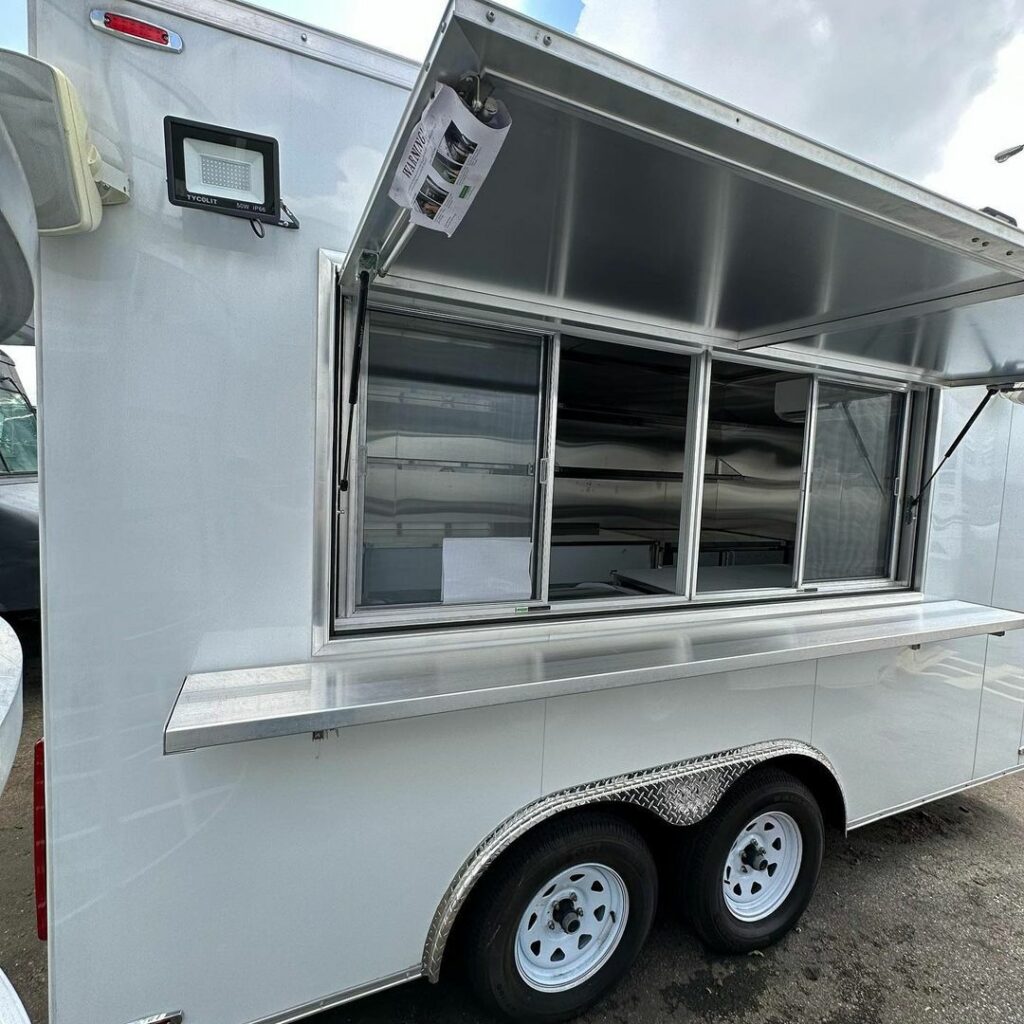

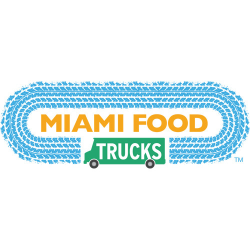
Leave a Reply